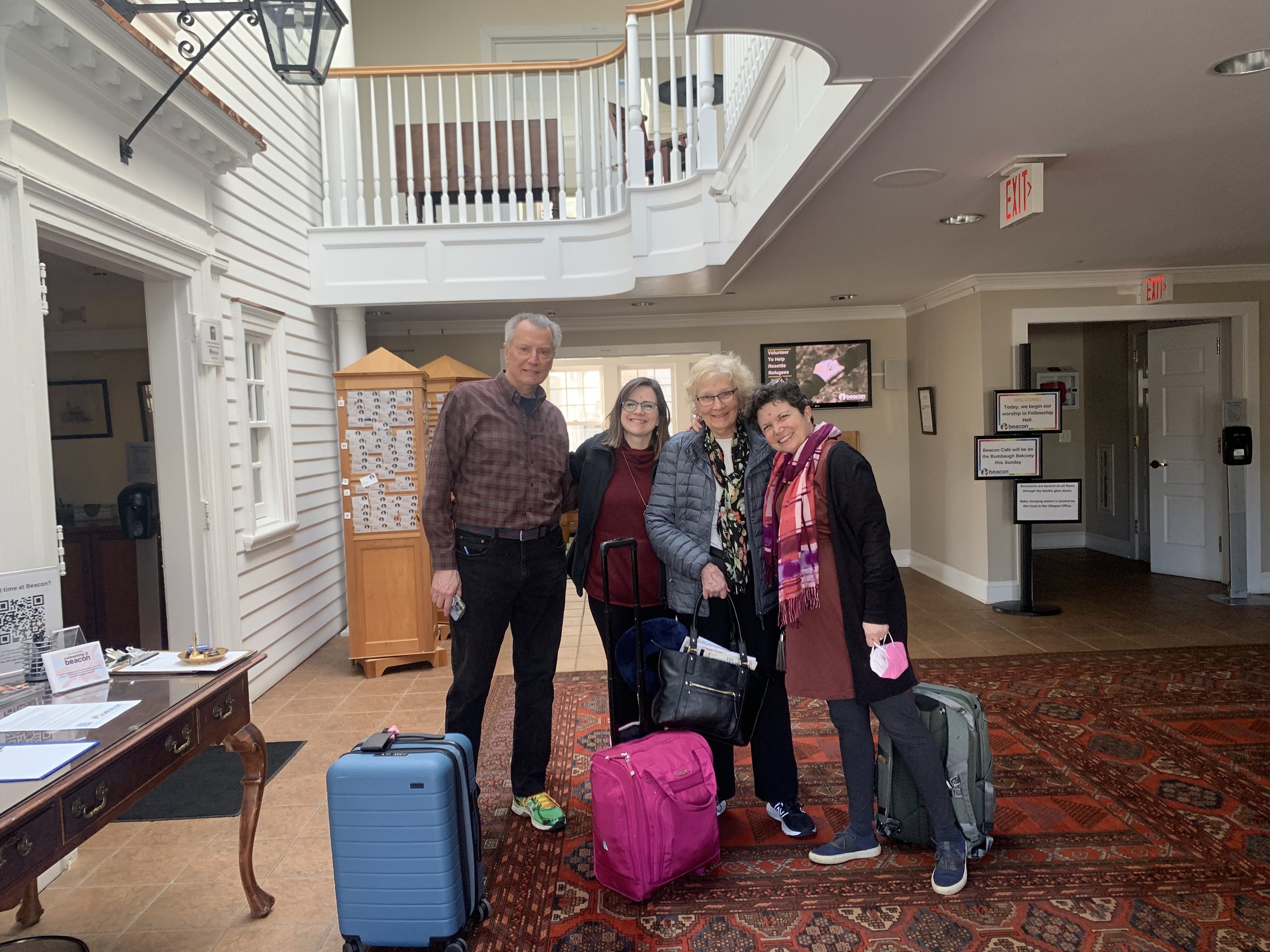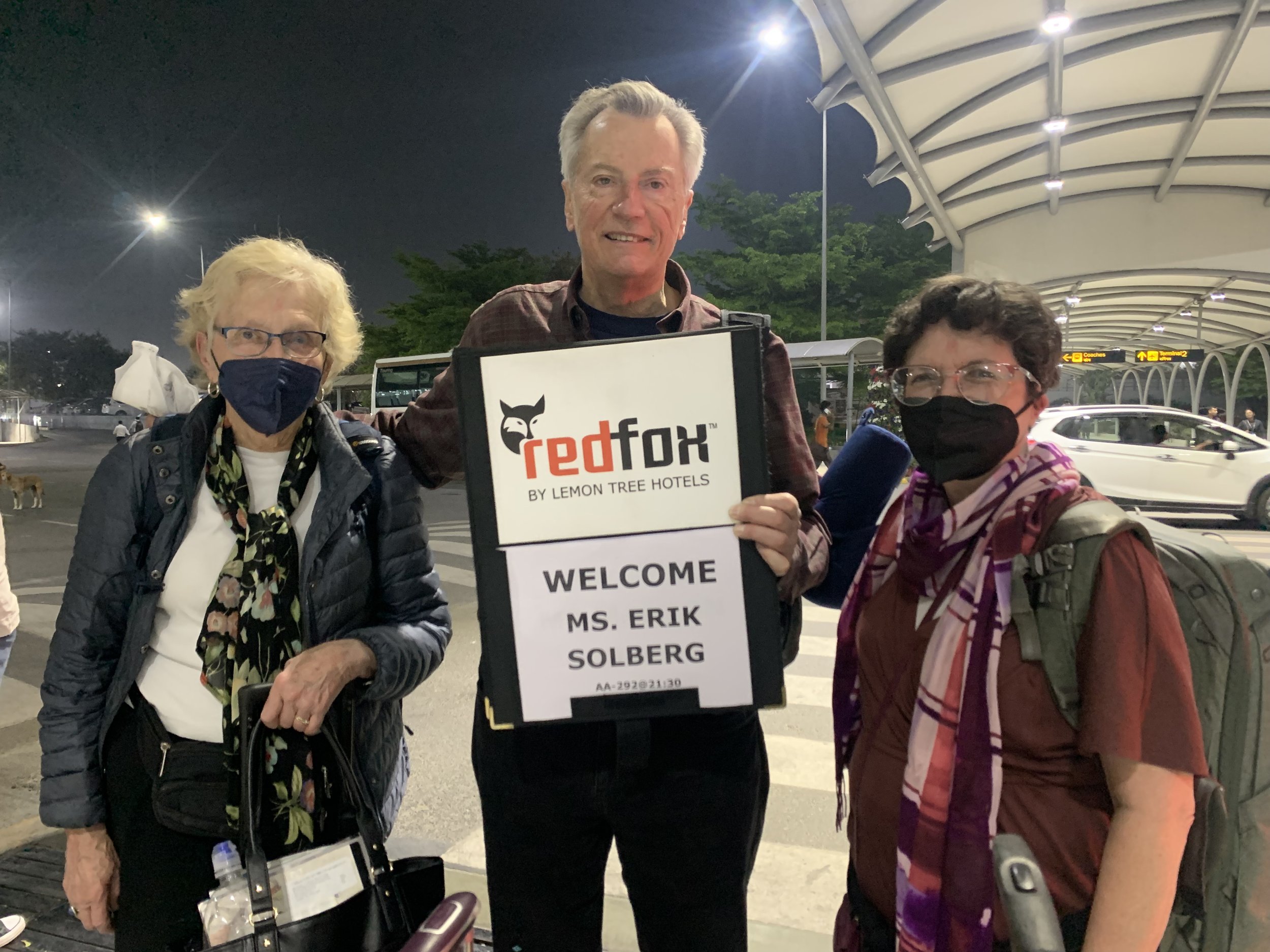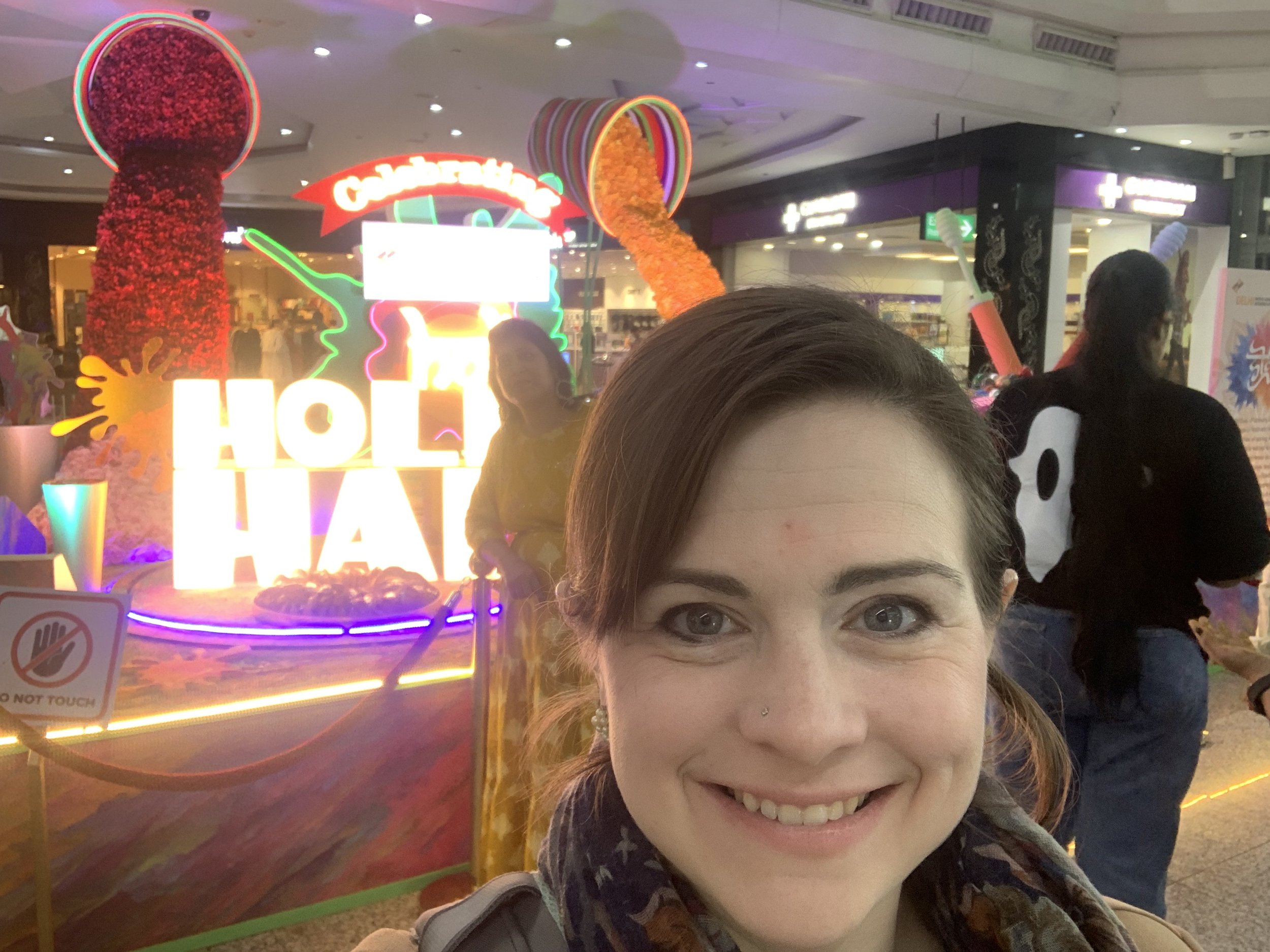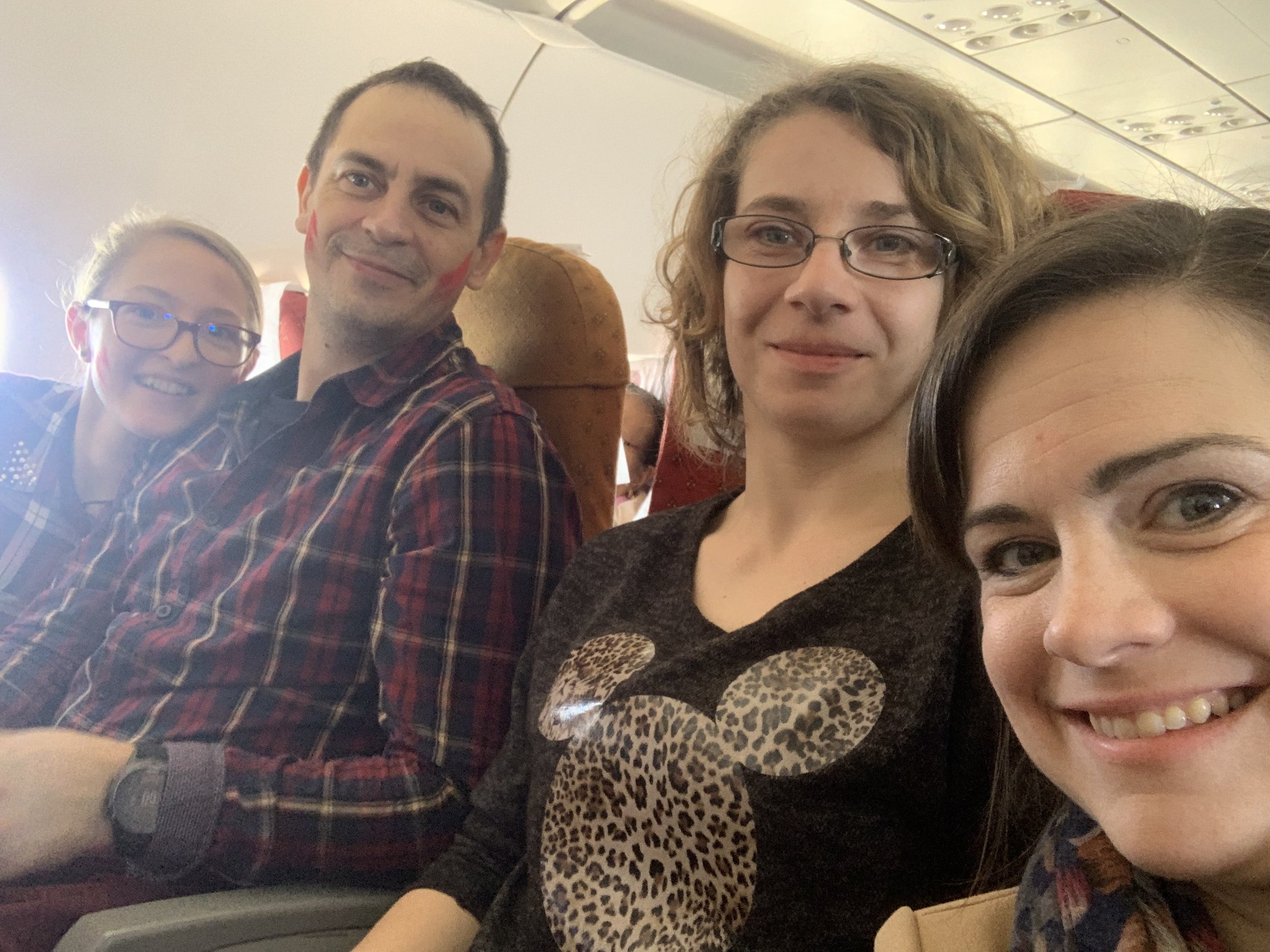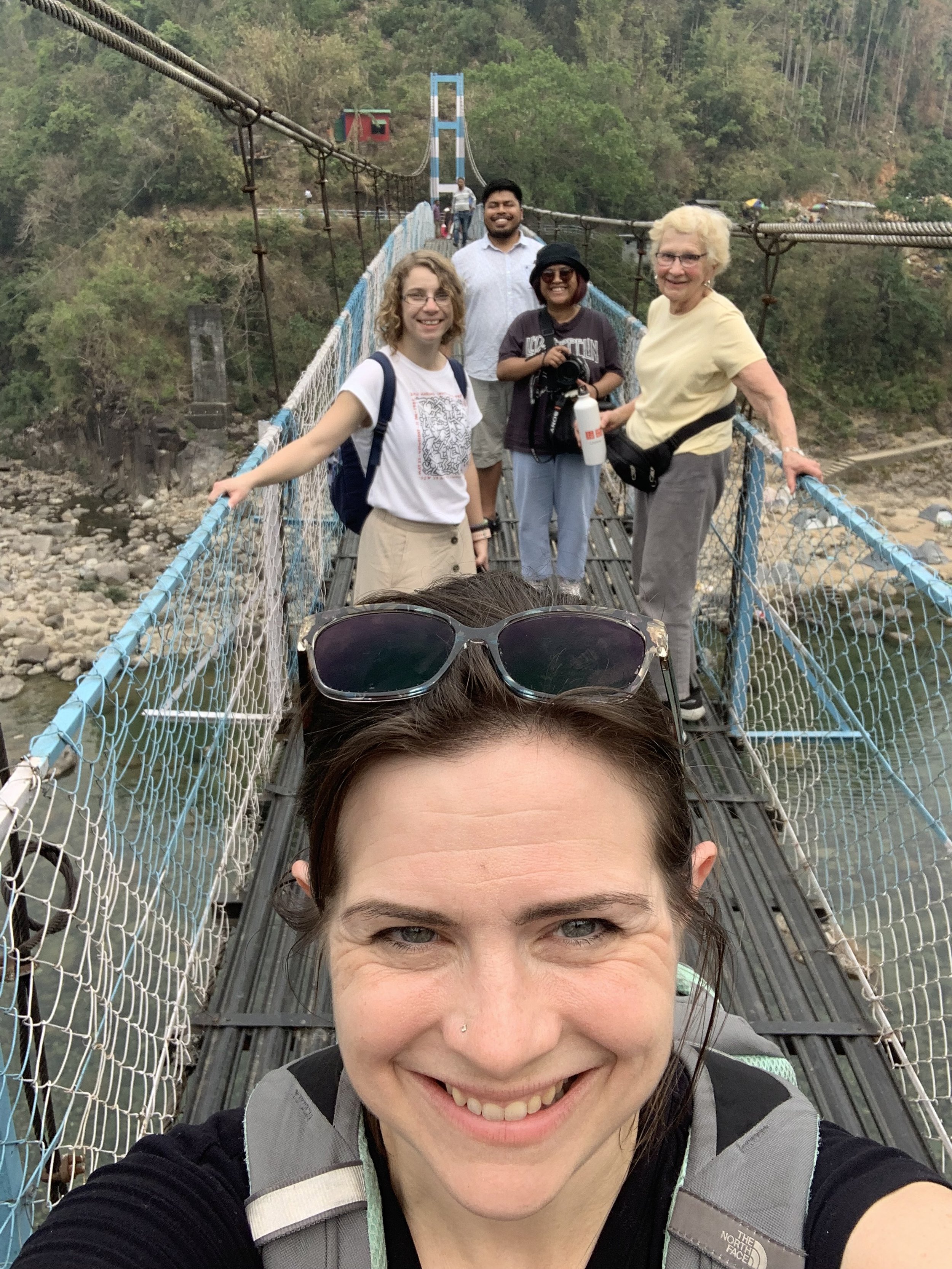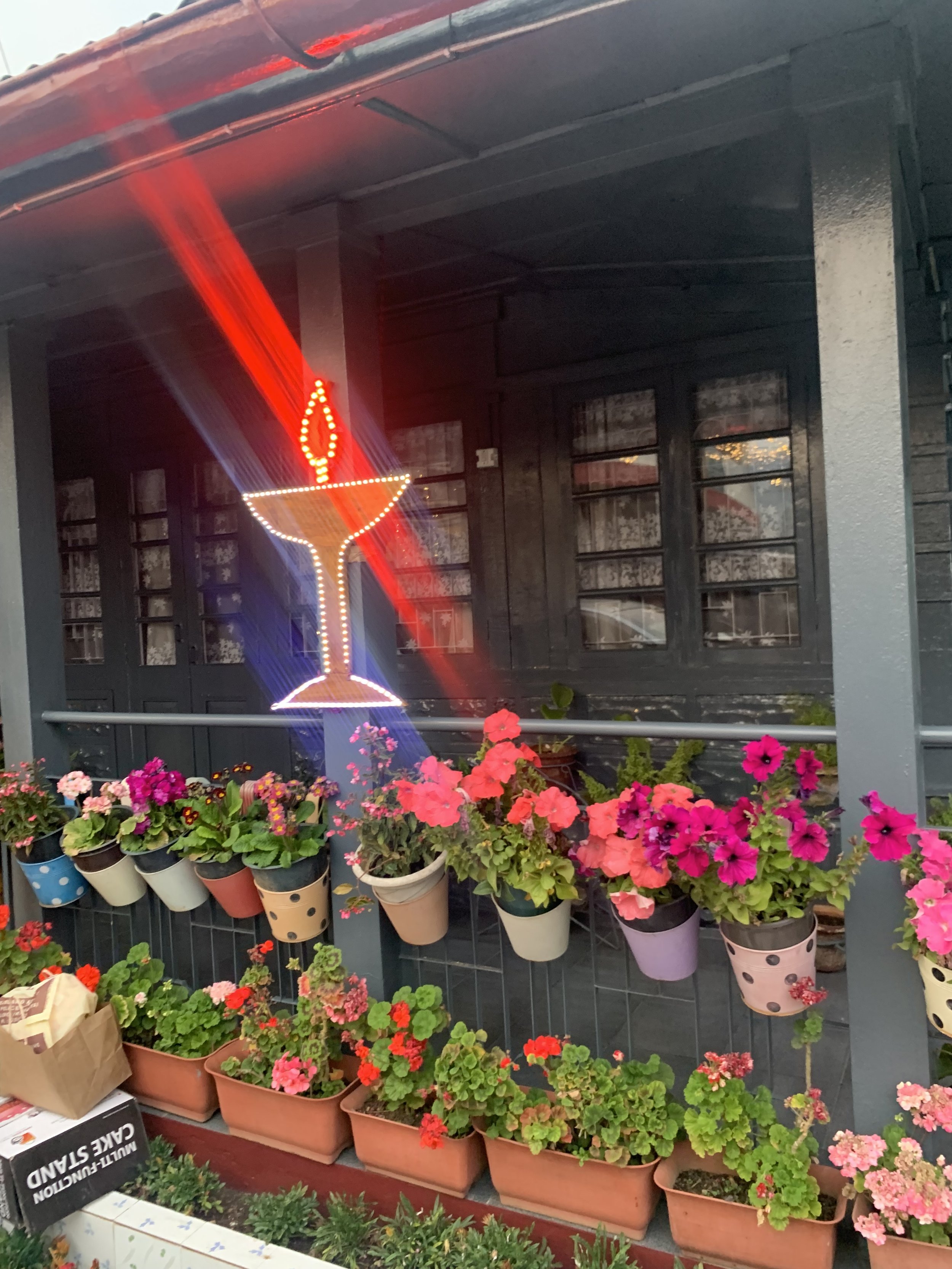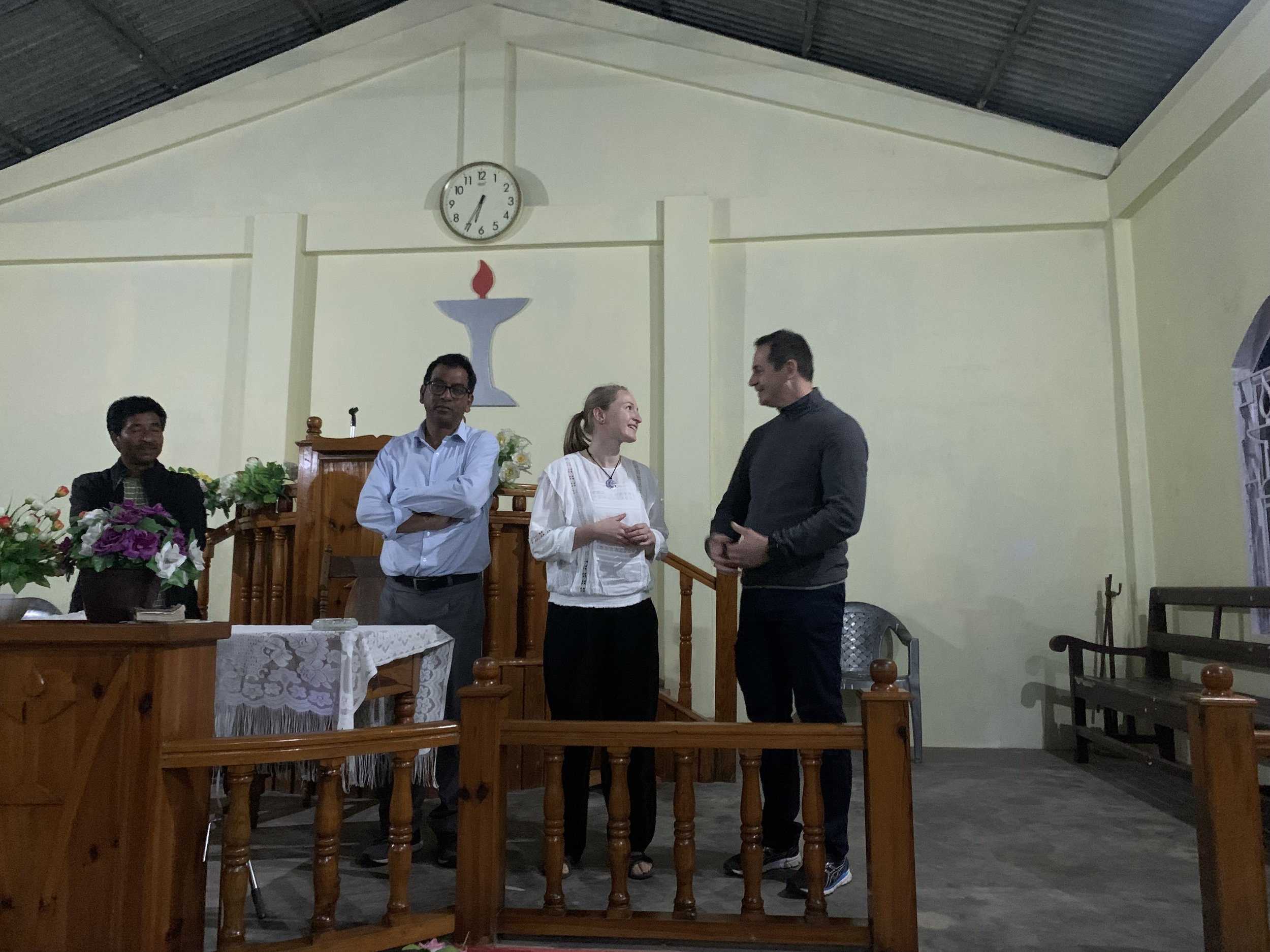Reflections from Partner Church Visit in India - March 2023
March 8, Rev. Robin:
Yesterday, we arrived in New Delhi. At the hotel we met with our friends from Romania: Rev. Zsófi, Sándor, and Andrea. Together, we boarded a flight to Guwahati where we met our partners to make the 6-hour drive to Jowai.
At the hotel in New Delhi during a bit of jet lag, I was greeted at the door by a man slightly older than I am with hands clasped in prayer to chest and a warm, “namaste.” It is a hello but also can take many meanings. As I echoed back the word and smiled, inside my head I loosely translated the greeting. “The light in me bows to the light in you.”
How different an experience from just a few days prior aboard a NJ transit train with my daughter Ella, where an older white woman berated us both after Ella had her feet for a moment on the seat. I corrected Ella to put her feet down, but the measure was insufficient. She went into a monologue about how inconsiderate we were. I responded, “You don’t have to be so mean,” which was entirely the wrong thing to say. Like gasoline to a fire. She followed us out of the train station into NY Penn Station until it was clear that I was headed toward a police officer.
While it is tempting to imbue the greeter at the door who said “namaste” with deep meaning, it is equally complex as I am arriving as a white American woman at a very nice hotel greeted by someone who works there. He is Indian. He is doing his job.
Social conditions, class, religion, culture, and race shape our interaction, but I can’t help but believe through all these barriers, transformation is possible. We can choose to evolve as I smile crossing the threshold, releasing my shoulders a bit more to the earth. I feel the red dot of Dr. Tuli’s blessing on my forehead.
Then, I think of the woman on the train. I realize she looked lost even as she yelled at me. I’ve been carrying her with me for three days now. “Namaste,” I whisper to my unknown beloved. Namaste – across time zones. I pray she is no longer frightened as I release her; that she finds her way home. I cannot control or alter her, but I can release her, and offer the warmth of human recognition. Choosing evolution, transformation. What a blessing to receive this first day here: release and recognition.
Namaste, Beloved. Namaste.
March 16, Rev. Robin:
It is hard to describe the experience of journeying through dusty roads, winding mountain passes, and up a narrow path to come, amid so much that is unfamiliar, and yet see that symbol of the chalice greeting you at the entrance to a church which is thousands of miles from home.
Again and again, here in the Jaintia Hills, we are greeted as beloved. We have visited seven churches, and, in each, a large group awaited us. After speaking and prayer, we were asked for tea or a meal.
Yes, the landscape is gorgeous. We’ve witnessed crystal clear waters with fish swimming across giant boulders and waterfalls. We’ve looked down into the mist-laden hills and explored the caves in Sohra. We’ve witnessed the birthplace and the death site of the founder of Unitarianism in these hills, Hajom Kissor Singh.
These were each stunning, humbling and beautiful experiences.
But the one that made us all weep was the last church we visited on a very long second day here in India. We were running late – we should have been there at 5:30 PM, and it was nearly 7 PM. As we pulled up, there was a crowd of maybe 50-75 people waiting for us. Padu is a small town nestled into the hills. Among the crowd were many children. Right away, Erik Solberg started high fiving the kids. Joy rippled across all of us as we made our way into the church. The church choir director shared that the children prepared a song. After the speeches and some prayer, they got up to sing.
“We Are a Gentle Angry People,” written by Holly Near (and in our teal hymnal) was an amazing and generous gift. Quickly followed by “Come and Go With Me to That Land,” we were soon all clapping and singing together. Rev. Zsófia, from Transylvania, closed us in a beautiful prayer in Hungarian, translated then into English and Khasi. She asked us to gather in a circle, hand to hand.
It is inspiring to see how Unitarianism is thriving in these hills in Northeast India. It is humbling to realize the scope and depth of our faith. Everywhere we go, we see the phrase of the founder, “to nang roi” or keep on progressing. May our partnership, and the wisdom to go deep with relationship call us to a shared faith that indeed transforms our collective communities, and in so doing, heals the world. Khublei, Beloved. Blessed may you be until we meet again.
April 12, Andrea Bardocz (from Barót): view photos in the related article
Last fall, Beacon Unitarian Universalist congregation (Summit, USA) and the Unitarian congregation of Barót celebrated 30 years of partnership. Reverend Alpár Kiss, now retired, played a major role in the development and maintenance of the relationship. In 2018, this partnership was expanded with the Unitarian congregation of Jowai (India). For the past year, discussions have been held in the online space, in Zoom meetings, but as soon as the opportunity allowed, face-to-face meetings had to be arranged.
This year, from 8 to 19 March in Jowai, India, this was possible. Three people from Barót (Zsófia László-Benczédi, the Unitarian minister of Barót, Sándor László, the minister’s husband, and Andrea Bardocz) and four from the US undertook the arduous journey into the unknown. It was a long, tiring, and challenging journey that included three flights. We arrived exhausted at Guwahati airport, where our Indian friends were waiting for us. In the heat of nearly thirty degrees Celsius and the constant honking of horns and heavy traffic, it was difficult to grasp where we had just landed.
It is difficult to describe the conditions in the two provinces we visited, Meghalaya and Assam. Everything is changing. In places the road conditions are better, potholed, but in others are not even asphalted. Meghalaya literally means “the abode of clouds” and is located in the north-east of India. It offers some interesting sights. It is surrounded by mountains - the Khasi, Garo and Jaintia hills. Its highest point is 1965 m. The capital of the province is Shillong. 74.6% of the population is Christian. About half of the population belongs to the Khasi tribe. The official language is English, but the Khasi language is the most widely spoken. There are few societies like this in the world: only women can inherit power and land.
Half the time we were there, we stayed with families, which gave us an insight into their living conditions. I can’t say their daily lives, because they took time off work to be with us, to show us around, to show us their sights. They are infinitely kind and direct people, at least those we have had the pleasure of meeting. They live in simple conditions, but not because they don’t have what it takes to make a more comfortable life. They simply don’t need all the gadgets, gizmos, decorations, and fashion items. They surround themselves with useful objects, but they don’t go overboard. Their homes are simply furnished, some with antique furniture and a few family photos. Nine Unitarian churches were visited during the trip. All of them were welcoming, adults and children came. Even in the poorest congregations, we were welcomed, even if only for a cup of tea, but they made it from the heart.
Under the heading of other sights we visited, I would like to highlight the two-story living root bridge, which we climbed up and down more than 3,500 steps to reach. There is also a breathtaking natural swimming pool. We went boating on the Dawki River, famous for its crystal clear waters. We also visited the Mawsmai Lighted Cave, full of fossils from an older age. In Sohra, we had a wonderful view of the stunning mountains, it is also called the Scotland of the East. Also here is the Nohkalikai waterfall, with water falling from an altitude of 340 meters and the second most precipitated place in the world, next to Cherapunji, with an annual rainfall of 11,777 mm. It was really special for us to walk in nature, as palm trees, banana trees, and bamboo trees were everywhere. We also passed by several rice fields during our day trips. The national park of Kashiranga also made a deep impression on us. During the jeep excursion we saw Indian rhinoceros, wild buffalo, swamp deer, monkey, wild boar, Indian marabou, Asian spotted goshawk, vulture, and many other species of animals of all sizes.
This trip was a great opportunity for us to get to know our Indian partners and their habitat, and to deepen our friendship with our American brothers and sisters. We are grateful for the time these people took away from their families and work to be with us. We are grateful for the openness and directness with which we were welcomed on our first day, for the many smiles, handshakes, and hugs we received. We thank them for coming to our aid immediately when our bodies were weak. Perhaps the pictures we have taken cannot do justice to the atmosphere, the cheerfulness, and the relaxedness of these two weeks. Because when trust seemed to be building, when friendship was being forged, when we were laughing ourselves to tears, we didn.t reach for our cameras. We tried to be present in the moments and enjoy them. Nevertheless, it is a good feeling to look back at the pictures and videos and discover something new each time. Thank you is not even enough to express our feelings, so let me use the most important word we learned from them: Khublei!
